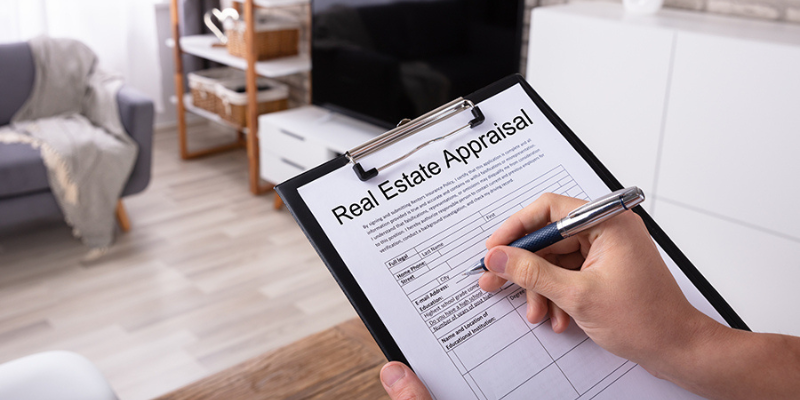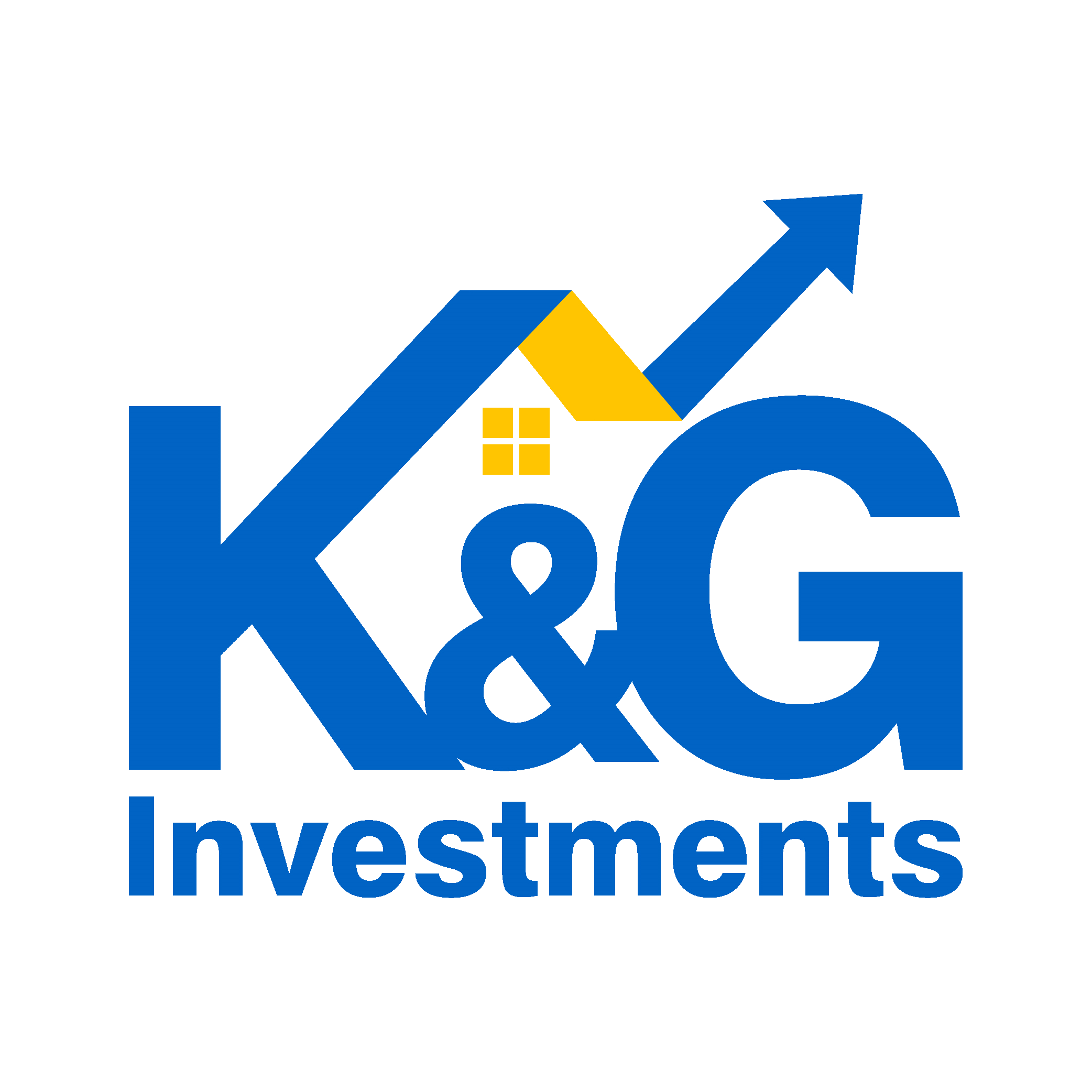
Familiarity with the schedule to close a property in St Paul, Minnesota, will simplify the home-buying process post-appraisal. This detailed guide outlines the steps from appraisal to closing while describing the expected order of events and their durations. This insight will assist in expectation management, whether you are a first-time buyer or an experienced investor, facilitating the process. Read this article to understand the most critical steps and the professional recommendations necessary to move from an appraisal to buying a home in St Paul.
Key Highlights
- Appraisals in St Paul assess market value, which is crucial for informed real estate decisions by buyers, sellers, and lenders.
- The appraisal process includes a formal evaluation, site inspection, and analysis of similar property sales.
- Closing typically occurs 30-45 days post-appraisal, influenced by lender processes and market conditions.
- Closing time variables include lender efficiency, market conditions, and buyer and seller preparedness.
- Effective communication and quick documentation submission can expedite the closing process.
Navigating the Appraisal Process in St Paul, Minnesota
Understanding the intricacies of home-buying in St. Paul, Minnesota, begins with the appraisal process. A home appraisal is a necessary component in securing a mortgage. Appraisals assess a property’s fair market value. Buyers and lenders need sound financial information, and an appraisal protects the buyers and lenders from overpaying and lending irresponsibly. Appraisals protect buyers and lenders from paying more than or lending more than the property is worth.
An appraiser evaluates if the negotiated home sale price terms adequately reflect the recent sale prices and values of comparable homes in the neighborhood. St. Paul’s real estate market is fast-moving, and understanding the appraisal process will help avoid losses in a real estate transaction.
Buyers, sellers, and agents all stand to gain from an understanding of the appraisal process, including the appraiser’s inspection and analysis of comparable sales and the key elements that go into determining value. Preparing the property and addressing potential issues in advance will likely lead to a more seamless and equitable appraisal process. Mastering every highlight of the appraisal process allows all stakeholders to attain confidence, clarity, and tranquility regarding one of the most demanding monetary decisions people make.
For personalized guidance or to receive an offer from our team of investor home buyers in St. Paul and surrounding Minnesota cities, contact us today—we’re here to help you navigate the appraisal process and achieve a smooth, successful home sale.
Understanding the Purpose of a Home Appraisal
The appraisal process is part of how the entire real estate system functions, especially in bustling metropolitan zones like St Paul, Minnesota. Appraising a home is one of the professional examinations needed in assessing real estate for the market, considering the property’s physical condition, location, and comparable sales. Buyers, sellers, and lenders must understand the importance of a home appraisal. Buyers need it to make sure they do not overpay for a home. Sellers need it to ensure they do not suffer a financial loss. Lastly, lenders require the appraisal to make sure the house is worth the loan they are handing out.
A licensed appraiser undertaking the assignment must complete a detailed report that includes their findings and the estimated property value, which they must conclusively arrive at by deeply analyzing comparable sales. St Paul’s market is competitive, which makes understanding the appraisal report vital to buyers so they know how to respond and preserve their value in negotiations. Sellers also need information on how to price their property realistically so they do not risk protracted negotiations or unsuccessful sales.
Appraisals are more than mere transactions; they have long-term financial implications in promoting equity and transparency. Not understanding the appraisal process may complicate buying or selling for those entering the St. Paul market, resulting in protracted and less assured negotiations. Knowing these fundamentals is pertinent for effectively navigating the city’s real estate market in its pulsating dynamic.
Common Steps in the Appraisal Process
During transactions in St Paul’s real estate market, it is imperative to be aware of the fundamentals of the appraisal process. An appraisal begins when a bank or lender accepts a mortgage application and makes a formal request. It is essential to have an appropriate appraiser contact you, as they conduct an independent analysis to provide the real estate market appraisal value to the lender.
After an appraiser is appointed, they perform an on-site valuation, which involves an examination of the home’s condition, the size of the land, and any additions or renovations. The appraiser considers the most critical neighborhood features and the proximity of the school, the park, and the commercial centers, as these all impact the desirability and market value of the property.
After this, the appraiser looks at recent sales of comparable properties—“comps”—so that the valuation fits the current market trends. Based on empirical market data, such a comparison grounds equity and fairness in the property’s value. Lastly, the appraiser prepares a value report that details the findings and the methodology used. A copy of this report is given to buyers and lenders to facilitate transparency and informed decision-making.
When all parties understand these steps, everyone participates in a transaction’s preparation, which leads to a smoother overall transaction. In a fast-moving city like St. Paul, competency assists buyers, sellers, and lenders to confidently and clearly guide a transaction through the quickly changing market.
What to Expect During a Home Appraisal

Knowledge of how a home appraisal fits into a real estate transaction in St Paul, Minnesota, is essential. Protecting buyers and lenders from overpaying or underpricing a home provides market balance and the buyer-lender balance. An objective, professional appraisal conforms to statutory valuation standards, which a licensed appraiser completes using the property’s condition, situation relative to the market, and recent comparable sales. An appraisal is critical to ensuring that the estimated loan coverage matches the property’s worth, therefore serving as an essential risk control in real estate transactions.
Understanding the various elements affecting an appraisal enables owners and sellers of real estate to realize the value they are entitled to receive. A property being evaluated is ultimately influenced in worth by the condition of the property at the time of the evaluation, the quality of any improvements made, and the changes happening in the value of comparable properties in the neighborhood. Owners whose properties are being evaluated can prepare by resolving any outstanding maintenance work, completing any necessary exterior improvements, and locating supporting evidence of any improvements made. These actions enable the appraiser to discover the real value of the home.
For those selling a rental property, appraisal awareness is especially important. Factors such as tenant occupancy, lease terms, and the property’s income potential can play a significant role in determining market value. Demonstrating consistent rental income, maintaining the property in good condition despite ongoing tenancy, and providing detailed financial records can all strengthen an owner’s position during the appraisal and sale process.
Being aware of which details appraisals hinge upon promotes confident initiation of the prospect by the owner. In the owner’s interest, the final value reflects the home’s market position. Informed and equitable appraisal outcomes support the appraisal objectives of the buyer, seller, and lender.
Factors Influencing Your Home Appraisal
There are many different things to consider as someone is getting the home appraisal process in St Paul started. Like any activity, the home appraisal process can become complicated, and the appraiser will consider many core components before determining the home’s market value. The home’s condition is the most important thing to figure out first. Homes in bad condition will be far less valuable than good ones and highly priced if they don’t need significant repairs. The appraiser thoroughly checks the entire home–the outside and the inside–from the condition and stability of the foundation all the way to the walls, floors, ceilings, and all other components. Recent updates are also essential and increase the price because they make the home more functional and nicer.
Another vital thing to consider is the location of the home. Homes in popular and valuable neighborhoods will be valued at higher prices, especially close to schools, public transportation, parks, and shopping centers. Keeping the neighborhood crime rate low and well-maintained open public spaces also increases the value of the location. St Paul has neighborhoods that are valued higher than others. In St Paul, as in other places, knowing what makes a neighborhood more valuable can help translate that into what value the neighborhood will be priced at for an appraisal.
Understanding how current market conditions influence a property’s appraisal value is paramount. An appraiser will look at recently sold comparable properties, or “comps,” to understand market trends and perform accurate valuations. In St. Paul, with competitive real estate markets, fluctuations within a competitive market will influence the value of an appraisal for a property, causing the value to appreciate or depreciate.
Lastly, the nature of a homeowner’s enhancements and features to a property is also essential. Quality building materials, contemporary kitchen and bathroom fixtures, and energy-efficient improvements to a property raise its value. Individually, the enhancements may be minor; however, cumulatively, the upgrades raise the property’s attractiveness and market value. Homeowners understand how the interplay of such factors will result in a property appraisal that is more honest and realistic, thereby allowing them to make more appropriate enhancements.
| Key Factors | Details | Impact on Value |
|---|---|---|
| Property Condition | Assessing structural integrity, repairs, and updates | Significantly influences final valuation |
| Location | Proximity to amenities, school districts, and safety | Can either enhance or diminish property value |
| Market Trends | Current supply and demand dynamics in the area | Affects the appreciation potential and competitive value |
| Comparable Sales | Review of recent sales of similar properties nearby | Establishes a benchmark for pricing |
| Unique Features | Special attributes like a pool, garden, or view | Adds distinctive value and appeal |
This table encapsulates the critical elements that impact a home appraisal in St Paul, helping stakeholders understand and optimize their property’s perceived value.
Preparing Your Home for a Successful Appraisal

The nuances of preparing for a home appraisal can significantly influence the final valuation. To secure a successful outcome for investor home buyers in St. Paul and surrounding cities in Minnesota, presenting your home in its best light is essential. Begin with curb appeal, as the appraiser’s first impression starts outside. Invest time in landscaping, cleaning driveways, painting fences, and making minor repairs to set a positive tone. A tidy, well-maintained exterior conveys care and boosts perceived value. Simple touches—like lawn mowing, planting flowers, or clearing pathways—can leave a favorable impression.
Eradicate disorganization and disorder in every single one of your spaces. An appraiser who is looking dispassionately at your space will appreciate well-organized spaces. Ensure your space is ready for a “remove it for appraisal” scenario. Take a functional kitchen or new floors as an example of renovations, and prepare before-and-after pictures and receipts before the appraisal. Receipts and pictures help with perceived value. Value appraisers will also be interested in renovations that add value.
Ensure that every space, including basements and attics, is ready for appraisal, potentially value contributors, and well-organized and functional pieces justify acceptance of a valuable use. Keep tax and other appraisal documents prepared for the appraiser.
Finally, convey your home’s distinct characteristics. Describe high-efficiency appliances, insulation improvements, or green enhancements; many buyers in St. Paul appreciate these. Comprehensive preparation increases the property’s appraisal potential. It assists the appraiser in executing their task more seamlessly, resulting in a smoother experience and a report that accurately captures the property’s value.
How Long Does It Take to Close After an Appraisal?
Understanding the timeline from the appraisal to closing the deal is background knowledge that every homebuyer in St. Paul, Minnesota, should possess. Once the assessment is done, the time-sensitive stage begins, where the market value is determined. On average, this takes 30 to 45 days from completion of the appraisal to closing.
On the other hand, the time may be more than average due to the lender, additional time provided by underwriting, and the different parties involved. During this time, the lender assesses the appraisal, closes the remaining steps on the loan, and creates the bundle to be signed at closing. For closing to occur, homebuyers must have no missing documents, and all information must be appropriately filled out; otherwise, closing will take longer.
Analyzing typical timeframes while acknowledging certain aspects that define those periods allows prospective homeowners to simplify the St. Paul housing market. They include delays related to appraisal reviews, title disputes, and concealing documents. Properly managing expectations concerning any potential delays improves communication and collaboration from buyers and sellers regarding lenders, realtors, and closing managers. Knowing the probable challenges from appraisal to closing day allows buyers to better deal with the stress that comes with the transition.
Typical Closing Timeline Post-Appraisal
The closing process typically spans a few weeks after a home appraisal is completed in St. Paul. On average, buyers can expect to close within 30 to 45 days after the assessment, though this can vary depending on several factors. The timeline begins once the appraisal report—usually delivered about a week after the inspection—is received by both the buyer and lender. The lender then reviews the report to ensure the appraised value aligns with the agreed purchase price and mortgage requirements.
Within this review period, lenders look for potential mismatches between the appraisal and the loan application submitted. Should the appraised value be under what was expected, the lender will wish to renegotiate the loan value or down payment. The underwriters within the lenders’ teams collaborate to ensure all financial prerequisites are satisfied across the board.
As this happens, the buyers complete the last stages of their mortgage application and obtain loan approval. Lenders commonly check for inconsistencies within the documentation or verification to equilibrate the loan’s value and ensure it reflects the buyer’s financial capabilities. Efficient movement through each stage of the process is possible only through open and transparent communication between all participants, and is crucial.
Following the completion of the appraisal and underwriting processes, the closing preparation phase begins. The title company or the escrow agent drafts the closing documents after confirming legal ownership through a title search. The seller and the buyer refer to the closing statement to ensure all charges and credits are correctly represented.
All the processes culminating in the closing day are marked by the signing of documents, transfer of money, and actual transfer of ownership. Timely home purchases directly result from good communication and stellar attention to detail, ensuring the closing processes after the appraisal are as seamless as possible.
Variables Affecting the Closing Time

The time taken in the process from appraisal to closing can be influenced by several factors, which can shorten or lengthen the time taken. One of the main factors is the mortgage lender. Lenders with more streamlined processes and better responsive communication can facilitate the speed of underwriting and processes; however, lenders that take more time outlining the financial documentation or take time in additional verifications will slow the process. The kind of loan will also play a part. Government-backed loans like FHA or VA take longer than conventional loans since more enforcement and documentation are needed.
Closing speed in St Paul’s real estate market can also play a part. When a market is busy, there are more delays with lenders or appraisers, resulting in turnaround delays. In slower markets, there tend to be fewer transactions, which means more time to close the entire process. The buyers and sellers in a transaction or deal also play a big part. Buyers who quickly provide the required stack of documentation and sellers who prepare the required documents promptly help facilitate a faster process. The most common delays that can be avoided are those that happen because of miscommunication, which stems from the lack of organization in the processes.
Changes in government regulations and banking laws impact closing timelines. Waiting periods after disclosures have been reviewed are mandatory and designed to protect all parties involved and cannot be bypassed. Lastly, issues such as liens and encumbrances may be discovered during title searches and property clearance checks that must be resolved before closing. Knowing these variables allows all parties to foresee and prevent possible issues that may arise, thus keeping the transaction flowing smoothly to the finish line.
K&G Investments streamlines the appraisal-to-closing process in St. Paul by maintaining efficient lender partnerships, proactive communication, and thorough preparation. We guide buyers and sellers through each step to minimize delays, ensure documentation accuracy, and resolve potential issues early—helping transactions close smoothly and on time.
Tips for Speeding Up the Closing Process
Closing on a home in St. Paul, Minnesota, can be stressful and complex. One must coordinate appraisals, loans, and the closing itself. Delays in closing can often result from carelessly completed forms, poorly structured communication systems, and changes in finances.
There are ways prospective buyers can minimize the delays in closing. Submitting all the documents in advance, proof of income and tax returns, and bank statements, as well as being available to answer questions, will help. For distress mitigation, prospective buyers should speak to their realtor, lender, and title company to comprehend every transaction step. Alone, there, open and direct communication with the lender will reduce closing times substantially.
Knowing what is needed with the loan and responding quickly to your questions will mitigate delays. Buyers who take the initiative to ask what is required and methodically cross-check the information to confirm that all the financial information is correct will facilitate smooth transactions. St. Paul homebuyers take the initiative to gain the efficiencies required and enjoy less stressful purchases with shorter appraisal-to-closing delays.
Effective Communication with Your Lender
Maintaining clear and consistent communication with your lender is essential to expediting the closing process. Open dialogue helps streamline the appraisal and loan approval stages, ensuring all parties stay aligned. Understanding and updating your lender’s requirements on any financial changes—like income shifts or foremost transactions—prevents discrepancies and delays.
Your lender is central to approving your mortgage and verifying that the appraisal aligns with the agreed-upon property value. Keeping them informed and engaged allows potential issues to be resolved early. Having a direct contact person for your loan is best to ensure accountability and prompt responses. Consistent communication builds trust and helps quickly address complications—such as appraisal discrepancies or credit concerns.
Leveraging technology also boosts efficiency. Most lenders offer online portals for document submission, progress tracking, and secure messaging, which keep records organized and accessible. A documented communication trail is invaluable if clarifications or disputes arise.
Lastly, ensure your real estate agent stays in sync with your lender to coordinate efforts between all parties. In St. Paul’s fast-moving market, open communication between agents, buyers, and lenders helps avoid misunderstandings and keeps the process on track.
In short, maintaining proactive, transparent communication with your lender simplifies the loan process, minimizes delays, and speeds up closing—helping you move smoothly from appraisal to final signing in St. Paul’s dynamic housing market.
To ensure clear communication with your lender, consider implementing these practical strategies:
– Schedule regular check-ins to discuss progress and address any concerns.
– Clearly understand and organize all necessary documents before submission.
– Use your lender’s preferred communication method for faster responses.
– Keep detailed notes of all conversations and agreements.
– Promptly respond to any requests or queries from your lender.
– Clarify terms and ask questions to avoid misunderstandings.
– Notify your lender immediately if there are changes to your financial situation.
These strategies support a streamlined mortgage journey, paving the way for a successful closing.
Quick Ways to Meet Loan Requirements
Meeting loan requirements promptly is key to speeding up the closing process once the appraisal in St. Paul is complete. The appraisal confirms the property’s market value for the lender, setting the stage for loan approval. To keep things moving, gather and organize all necessary documents—proof of income, bank statements, tax returns, and employment verification—so they’re ready when needed.
Before the appraisal, review the lender’s requirements and ensure your credit report is accurate. Resolving discrepancies early and submitting documents promptly helps avoid last-minute issues and signals responsibility to lenders.
Address potential loan obstacles in advance, such as outstanding debts or irregular income, and consider consulting a financial advisor. Familiarize yourself with the documentation required for different loan types, such as FHA or VA loans, to prevent unnecessary delays. Respond quickly to any conditions set during underwriting. Keeping a checklist of these requirements helps track progress and ensures nothing is overlooked.
Finally, use your lender’s digital tools to upload and verify documents efficiently. Using online systems for communication and submissions minimizes delays and keeps the process on schedule. By staying proactive, organized, and responsive, buyers working with a cash for houses company in Bloomington, St. Paul, and other cities in Minnesota can transition smoothly from appraisal to closing—turning potential roadblocks into a streamlined path toward homeownership.
FAQs:
What is the average timeline from appraisal to closing in St Paul, Minnesota?
Typically, the closing process takes 30 to 45 days after the appraisal, though the timeframe can vary based on lending processes and market conditions.
What factors can influence the closing timeline after an appraisal?
The timeline can be affected by lender efficiency, current market conditions, and buyers’ and sellers’ preparedness. Responsive communication and timely documentation submission can help expedite the process.
How does the appraisal process in St Paul work?
The appraisal process involves a formal evaluation of the property, including a site inspection and analysis of comparable sales, to determine its market value. Buyers, sellers, and lenders must make informed decisions.
Why is a home appraisal critical in real estate transactions?
A home appraisal ensures the sale price aligns with the property’s market value. This protects the interests of buyers, lenders, and sellers by confirming that the property is suitable collateral for a mortgage.
What steps should homeowners in St Paul take to prepare for an appraisal?
Homeowners should enhance curb appeal, maintain cleanliness and organization, and ensure accessibility to all areas. It’s also essential to document and showcase any recent updates or improvements.
Need to sell your house? Whether you want to sell fast, skip expensive repairs, or enjoy a hassle-free process, K&G Investments can help. We provide fair cash offers, care for all the details, and ensure a smooth, stress-free sale. Have questions or ready to get started? Call us at (612) 400-8070 for a no-obligation cash offer today!
Helpful St. Paul Blog Articles
- Can Heir Property Be Sold in St. Paul, MN
- How Long After an Appraisal Can You Close in St. Paul, MN
- How to Sell a House in Bankruptcy in St. Paul, MN
- Selling My Parents’ House in St Paul, MN
- Sale Of A Rental Property in St. Paul, MN
- Selling A House With Termite Damage in St. Paul, MN
- Selling A House To A Family Member in St. Paul, MN
- Sell a House in St. Paul, MN, When Relocating
- Selling Home with Reverse Mortgage in Saint Paul, MN
- Selling Your House to a Relocation Company in Saint Paul, MN
- Can an Estate Administrator Sell Property in Saint Paul, MN
- How to Sell a House When You Are Behind on Payments in St. Paul, MN

